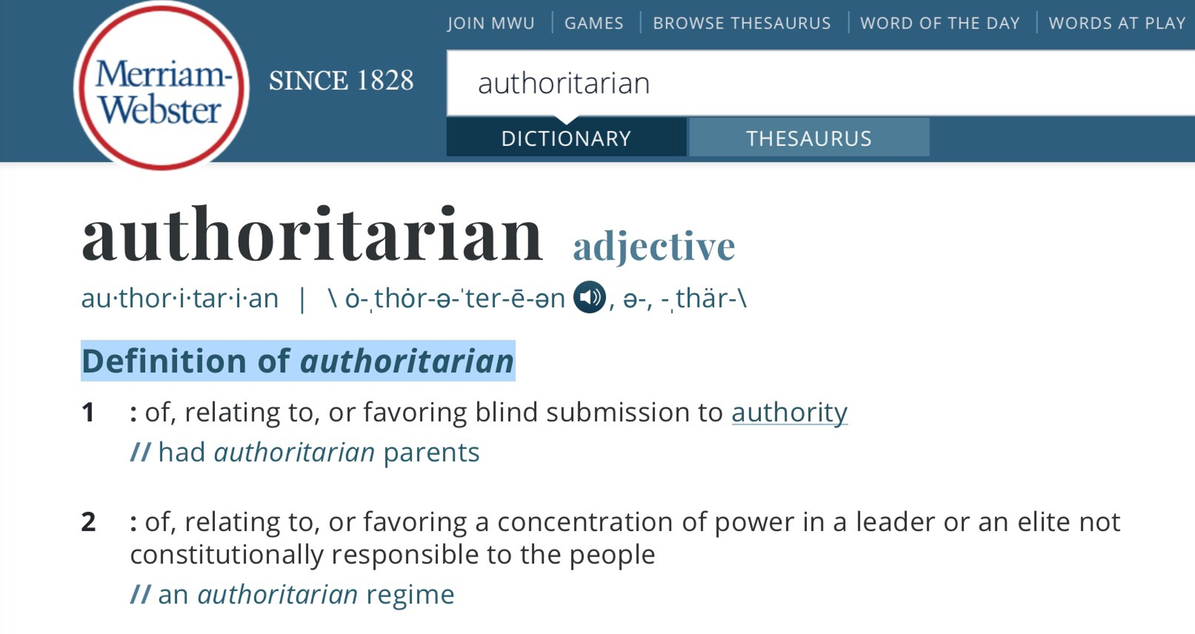He may win the nomination. It is at least conceivable that he could win the White House. But whether this does or doesn’t happen, let’s be clear about one thing: the “fed-up” folks who believe Donald Trump is the alternative to the system are overlooking the system itself. American democracy.
We’ve heard all kinds of reasons for why Trump’s wave of supporters has come into existence in the first place. And why it’s kept growing. But when we place conjecture aside and look at actual data, there is an overarching organizing principle behind what the candidate calls a “movement.” Two months ago, Matthew MacWilliams at the University of Massachusetts conducted a national poll of 1,800 registered voters, and here’s what he discovered:
“Running a standard statistical analysis, I found that education, income, gender, age, ideology and religiosity had no significant bearing on a Republican voter’s preferred candidate. Only two of the variables I looked at were statistically significant: authoritarianism, followed by fear of terrorism, though the former was far more significant than the latter.”
“Authoritarianism” is defined by Merriam-Webster as: “of, relating to, or favoring a concentration of power in a leader or an elite not constitutionally responsible to the people.” And MacWilliams found that right now this appeals to a whole lot of Americans.
While history is rife with examples of strongmen who showed up playing cynical tunes strategically composed to seduce a frustrated and vulnerable national herd, there are two reasons why it is particularly ironic to see this happening in the United States.
The first is that we have heard both sides of the political aisle in our country carping for the last 15 years about executive overreach by our last two presidents. You would think that this might lead to a desire to dial back the degree of power being exercised in the White House. You would think. But overall voter exasperation seems to have superseded this principle. Millions of Americans seem to want, as Ross Douthat observed over the weekend in the New York Times, “an imperial presidency.” Douthat elaborated on his description of Trump as presidential candidate:
“A right-wing Caesarist whose authoritarian style and outrageous promises makes George W. Bush look like Cato the Younger…He is the Republican Party’s monster, yes. But what he represents is also part of the Obama legacy — a nemesis for liberal follies as well as conservative corruptions, and a threat to both traditions for many years to come.”
But it’s the second ironic element of Trump’s authoritarian appeal that is even more dramatic – almost comical. An “imperial presidency” in the U.S.A.? An authoritarian leader who from his throne can unilaterally build a wall or eliminate the E.P.A. or surveil religious institutions on a whim? It’s more than ridiculous; it’s antithetical to the entire founding ideal of this nation.
There was once a Revolutionary War. It was fought against the monarchy of King George III. The Continental Army’s unlikely victory over the vaunted British Redcoats led to the United States of America – based on a historic new form of government chartered in the U.S. Constitution. And because our founding fathers had suffered under the harsh rule of a British authoritarian power, they created a representative democracy that was designed to limit the power of the executive.
As Trump’s popularity began to take off last summer, I wrote the following in this space:
“For many, it’s a comforting thought to believe that if only we had a successful, bold CEO in the White House, our government would work with an efficiency approaching the level of a highly profitable corporation. But even folks with a hazy memory of grade school civics will come to realize that this is not a realistic notion in our democracy. An individual elected governor or president is afforded a great degree of power, either by respective state or U.S. Constitution. At the same time, and by very intentional design, our heads of state are constrained by the constitutional imperative to work with a legislative branch that also possesses great powers – if not always exercised.”
Like many, I was quite incorrect about Trump’s staying power. Like many, I’ve been disappointed by what this GOP primary has been reduced to. But setting all that aside, the voters who are supporting Trump based on his tough-guy talk and promises of authoritarian action are being sold fraudulent merchandise. Even in the event he is elected president, Trump cannot do nearly all of the things he spouts off about without a willing, functioning U.S. Congress. The checks and balances within American democracy don’t just go away because citizens are infuriated by a lack of results.
There are real reasons today why so many of us feel intense frustration about our government. But it can’t and won’t be fixed by one person or one party. The structural defects that deter progress in our legislative branch may seem awfully dull when contrasted with the excitement and shock value of a muddy presidential horserace playing out on live television. But these real defects in the system only grow worse the more we ignore them. Any president needs Congress. All Congresses need the president. We set it up that way. Voters cheering on Trump may want to review Article I of the Constitution, thoughtfully consider their choices, and manage expectations accordingly.


